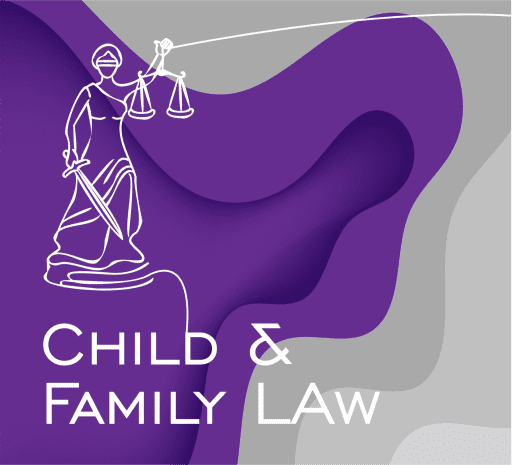When contentious disputes arise over a child’s upbringing, a specific issue order can provide a legal resolution. Whether the dispute is about education, holidays, relocation, or medical treatment, specific issue orders offer a pathway to address disagreements and prioritise the child’s welfare.
This article outlines what specific issue orders are, who can apply for them, and the key factors the court considers when deciding on such matters.
What is a Specific Issue Order?
A specific issue order is a court order under Section 8 of the Children Act 1989 (ChA 1989) that addresses a specific question regarding parental rights, responsibilities, or the administration of a child’s welfare. It applies to cases where a definitive resolution is required, such as:
- Choosing between public or private schools or disputes over faith-based schooling.
- Whether the child can be moved within or outside the UK.
- Deciding on vaccinations, treatments, or surgeries.
- Seeking to change a child’s surname.
These orders are designed to resolve either/or disputes and must relate directly to parental responsibility. Specific issue orders cannot achieve outcomes already covered by child arrangement orders (CAOs) and are not intended for generalised family disputes.
Who Can Apply for a Specific Issue Order?
- Any parent with parental responsibility under the Children Act 1989 can apply.
- Grandparents, siblings, relatives, or individuals with a significant connection to the child can also apply, provided they first seek the court’s permission using Form C2.
Key Factors Considered by the Court
When deciding on a specific issue order, the court’s primary concern is the child’s welfare. This involves applying the welfare checklist under Section 1(3) of the Children Act 1989, which considers factors such as:
- The child’s physical, emotional, and educational needs.
- The potential impact of decisions on the child’s well-being.
- The child’s wishes and feelings, depending on their age and understanding.
The court will also assess whether making an order is better than leaving the matter unresolved.
Common Scenarios for Specific Issue Orders
1. Holidays
Taking a child outside the UK requires the consent of everyone with parental responsibility. If a parent refuses consent, a specific issue order may be necessary. Courts typically grant such orders unless there is a genuine risk of abduction, safety concerns, or objections from the child that are deemed valid.
2. Education
Disputes over schooling, such as whether a child should attend a faith school or a particular institution, often require a specific issue order. The court evaluates which choice aligns with the child’s best interests and considers the views of the child if they are capable of expressing them.
3. Medical Treatment
Decisions about vaccinations, surgeries, or other medical treatments can be contentious. The court relies heavily on expert medical advice while weighing the child’s best interests and, where appropriate, their own preferences.
4. Relocation
Relocation cases—whether within or outside the UK—often require specific issue orders. Factors considered include:
- Practical arrangements for schooling and contact with the other parent.
- The emotional and developmental impact on the child.
- The benefits and risks of disrupting the current living arrangements.
How to Avoid the Need for a Specific Issue Order
Litigation is often considered a last resort. Parents are encouraged to explore alternative dispute resolution methods such as mediation or collaboration.
- Mediation: Involves a neutral mediator helping parents reach a mutually agreeable solution.
- Collaboration: A structured process where parties and their legal representatives negotiate solutions focused on the child’s needs.
If agreement is reached, a Minute of Agreement can formalise decisions, providing clarity on issues like schooling, holidays, and other child-centered arrangements.
Enforcement of Specific Issue Orders
If a specific issue order is breached, the court has several enforcement tools under the Family Law Act 1986:
- Committal for Contempt of Court: Non-compliance can result in fines or imprisonment.
- Child Recovery Orders: A court officer can retrieve a child unlawfully withheld.
- All-Ports Warning: Prevents the removal of a child from the UK without consent.
- Passport Surrender: To mitigate risks of abduction, courts may order passports to be surrendered.
Legal Guidance is Key
Navigating disputes about children can be emotionally and legally complex. Specific issue orders provide a framework for resolving critical issues, but each case is unique and requires careful consideration of the child’s welfare.
How Aristone Solicitors Can Assist
At Aristone Solicitors, we specialise in family law and are here to support you through the legal process of obtaining a specific issue order or resolving disputes through mediation. Our experienced team will provide practical, compassionate advice tailored to your unique circumstances.
For expert legal guidance, contact us today:
- Luton: +441582 383 888
- London: +442034 393 888
- St Albans: +441727 519 888
Alternatively, complete our contact form, and we’ll respond promptly.
FAQs About Specific Issue Orders
- What is a specific issue order?
A specific issue order is a legal tool used to resolve specific disputes about a child’s upbringing, such as education, medical treatment, or relocation. It is issued under the Children Act 1989 to address specific questions related to parental responsibility.
- Who can apply for a specific issue order?
Parents with parental responsibility can apply, as well as others with a legitimate interest in the child’s welfare, such as grandparents or guardians. Those without automatic eligibility must first seek the court’s permission.
- Do I need permission to apply for a specific issue order?
If you have parental responsibility, you do not need permission. However, if you are not a parent or guardian, you must file a Form C2 to seek the court’s permission before applying.
- How does the court decide on a specific issue order?
The court’s primary focus is on the child’s welfare. It uses the welfare checklist in Section 1(3) of the Children Act 1989 to assess factors such as the child’s needs, the impact of the decision, and the child’s own wishes (if they are old enough to express them).
- Can a specific issue order stop my ex-partner from relocating with our child?
Yes, if your ex-partner wishes to relocate and you do not agree, you can apply for a specific issue order to prevent the relocation. The court will consider whether the move is in the child’s best interests.
- What is the difference between a specific issue order and a prohibited steps order?
A specific issue order addresses a specific question (e.g., where a child should attend school). A prohibited steps order prevents a parent from taking a specific action without the court’s consent (e.g., relocating the child abroad).
- Do I need a lawyer to apply for a specific issue order?
While it is possible to apply for a specific issue order without a lawyer, having legal representation ensures your case is presented effectively, especially if the dispute is complex.
- Can my child express their wishes during the process?
Yes, if your child is deemed mature enough to form their own views, the court will consider their wishes as part of the decision-making process.
- How long does it take to get a specific issue order?
The timeline varies depending on the complexity of the case, but typically it can take several weeks to months. Urgent cases, such as those involving relocation, may be expedited.
- What happens if someone breaches a specific issue order?
If a specific issue order is breached, the court can enforce it through various measures, including fines, imprisonment, or orders to recover the child.
- What are the costs involved in applying for a specific issue order?
Court fees and legal costs depend on the complexity of the case. It’s advisable to seek legal advice to understand the full financial implications.
- Can a specific issue order be overturned or changed?
Yes, if circumstances change significantly, you can apply to the court to vary or discharge the specific issue order.
- Is attending mediation mandatory before applying for a specific issue order?
Yes, attendance at a Mediation Information and Assessment Meeting (MIAM) is usually required unless an exemption applies (e.g., domestic abuse cases). Mediation can help resolve disputes without court intervention.
- Can I take my child on holiday without a specific issue order?
If you have sole parental responsibility, you can take your child abroad without consent. If not, you will need the consent of everyone with parental responsibility or a specific issue order from the court.
- Can a specific issue order help resolve disputes about medical treatment?
Yes, specific issue orders are often used in disputes over vaccinations, surgeries, or other medical interventions. The court will prioritize the child’s welfare and may rely on expert medical advice.
- How do I prepare for a specific issue order application?
Gather all relevant documents, including evidence of the dispute (e.g., school reports, medical records, communication with the other parent). Legal advice can help you build a strong case.
- Can a specific issue order be used to change my child’s surname?
Yes, but the court will only approve a name change if it is in the child’s best interests. Both parents must generally agree, or a specific issue order must be obtained.



